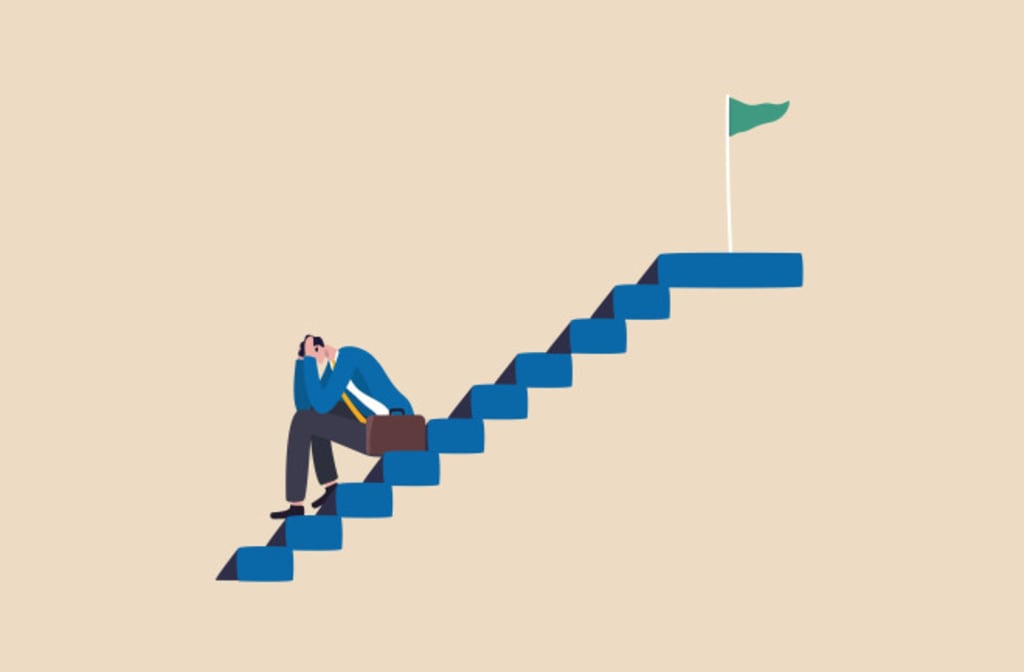
The Enigma of Failure: Unraveling the Lessons within Mistakes
Life is a process of learning. It's alright to make mistakes.
If you feel you are always wrong it should be one of these reasons
- You think a lot
- You are too critical of yourself.
- You are unsure of what you are doing.
- You are a perfectionist.
- You are immature.
A decision when taken is neither correct nor wrong. How you execute your decision will later prove that you are right or wrong! Secondly you are taking decisions to please everyone which is highly impossible and you lack confidence and do not stand up for your decision
In the intricate tapestry of learning, a captivating study from 2019 unveils the profound interplay between challenge and mastery. Over 400 participants embarked on a linguistic odyssey, delving into the acquisition of a mysterious, fabricated language. This linguistic adventure, however, was more than a mere academic pursuit; it held the key to understanding how individuals navigate the terrain of failure and success.
The participants were tasked with deciphering three pairs of runes, each representing either an animal or a non-living object. The twist lay in the covert mechanics of the game—their responses in the initial round determined the meanings assigned to the runes in the subsequent phase. The first round presented a pivotal choice: either every answer was marked as correct, irrespective of accuracy, or participants were compelled to fail every question. This dichotomy created a level playing field during the break, ensuring that all participants possessed an identical pool of information. However, as the study unfolded, a fascinating pattern emerged.
Despite the ostensibly even start, those who tasted success in the first round ascended to the summit of proficiency in the second. Conversely, individuals consigned to the failure group found themselves trapped in a cycle of continued setbacks. The study cast a spotlight on a fundamental human conundrum—why do some individuals seamlessly transform failures into stepping stones, while others remain ensnared in the web of defeat?
Failure, often touted as a crucible for growth, encounters resistance on its journey to becoming a teachable moment. The resistance is not just a cognitive struggle but an emotional one, as failure challenges the very core of one's self-image. A replication of the rune study revealed that participants in the failure group experienced a notable decline in self-confidence. This emotional toll, however, is not a transient setback; studies suggest that substantial threats to self-esteem can impede the brain's capacity to assimilate new information.
The relationship between failure and learning is further nuanced by the individual's connection with the task at hand. A 2011 study exploring the preferences of students in French language courses found a compelling distinction. Beginners, embarking on the journey of acquiring a new skill, leaned toward positive reinforcement. In contrast, advanced learners exhibited a preference for critical feedback, suggesting that, as proficiency grows, so does the ability to tolerate and learn from failure.
Yet, the challenge persists: learning from failure is inherently difficult. The simplicity of learning from success, where patterns and choices leading to triumph can be easily replicated, stands in stark contrast to the enigma of failure. When faced with failure, the ambiguity surrounding the cause of the setback complicates the learning process. The intricate dance between study choices, preparation, and the unpredictability of assessments makes deciphering the lessons within failure a formidable task.
The desire to gain wisdom from failure is a natural instinct, but it must coexist with resilience and a growth mindset. While it is crucial to navigate the labyrinth of setbacks, it is equally important not to lose sight of the victories. The path to mastery is a mosaic of both successes and failures, each contributing to the tapestry of personal growth. As we unravel the enigma of failure, let us not forget the power of building on our strengths, for therein lies the key to transformative learning and sustained success.
About the Creator
Prabu R
Another human being on this planet! A peace loving being






Comments
There are no comments for this story
Be the first to respond and start the conversation.